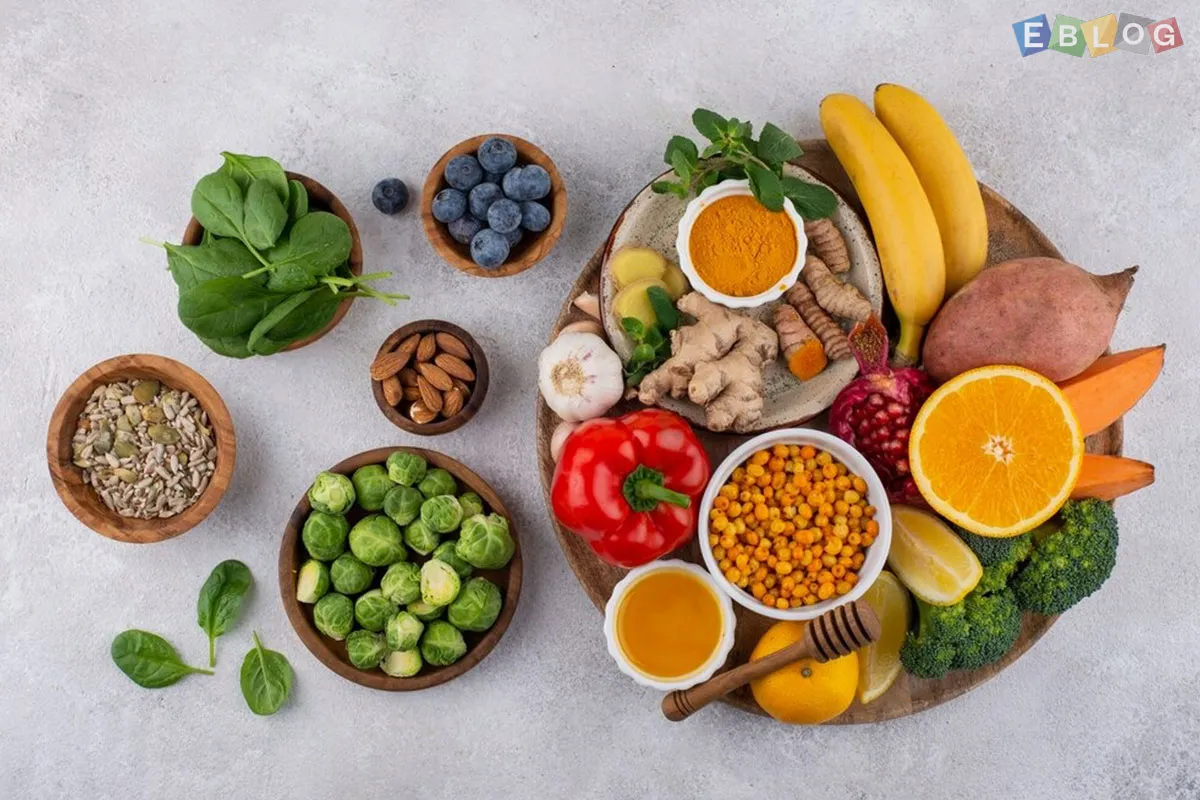
How to Build a Balanced Diet - The essential nutrients your body needs
- 12 Feb, 2025
- Food
- 662 Views
- 0 Comments
Eating a balanced diet is essential for maintaining good health and overall well-being. It provides your body with the necessary nutrients, vitamins, and minerals to function properly, keep your energy levels stable, and reduce the risk of chronic diseases. But with so much conflicting information about nutrition, it can be difficult to know what exactly makes up a balanced diet. This blog will guide you through the essential nutrients your body needs and how to incorporate them into your daily meals.
What is a Balanced Diet?
A balanced diet consists of a variety of foods from all the major food groups. These groups provide your body with different essential nutrients that work together to support physical and mental health. A balanced diet should include:
a. Carbohydrates
b. Proteins
c. Fats
d. Vitamins
e. Minerals
f. Water
Let’s break down each of these components and how you can include them in your diet.
1. Carbohydrates: Your Body’s Primary Energy Source
Carbohydrates are the body’s main source of energy. They are found in foods like bread, rice, pasta, potatoes, and fruits. Carbs are broken down into glucose, which your body uses for energy. However, not all carbs are created equal—focus on consuming complex carbohydrates over simple sugars.
a. Complex Carbs: Whole grains, vegetables, legumes, and beans. These carbs are digested more slowly, providing lasting energy and promoting better digestion.
b. Simple Carbs: Found in sugary foods and processed snacks. These are quickly digested and can lead to energy crashes. Limit their intake for better health.
2. Proteins: Building Blocks for Your Body
Proteins are essential for muscle growth, tissue repair, and immune function. Your body breaks down proteins into amino acids, which it uses to build and repair tissues. High-quality protein sources include:
a. Animal-Based Proteins: Lean meats, poultry, fish, eggs, and dairy products.
b. Plant-Based Proteins: Beans, lentils, tofu, quinoa, and edamame.
Try to incorporate a variety of protein sources into your meals to ensure you are getting all the necessary amino acids.
3. Fats: Healthy Fats for Heart Health
Fats are essential for brain function, hormone production, and the absorption of fat-soluble vitamins (A, D, E, and K). However, not all fats are healthy. Focus on consuming unsaturated fats and limiting saturated and trans fats.
a. Healthy Fats (Unsaturated): Avocados, olive oil, nuts, seeds, and fatty fish like salmon and mackerel.
b. Unhealthy Fats (Saturated and Trans): Red meats, processed meats, and fried foods. These fats can increase the risk of heart disease when consumed in excess.
Aim for healthy fats to improve heart health and maintain your overall well-being.
4. Vitamins: Vital for Overall Health
Vitamins are essential micronutrients that support various bodily functions, including immune support, skin health, and energy production. Different vitamins play different roles:
a. Vitamin C: Found in citrus fruits, strawberries, and bell peppers. It supports immune function and skin health.
b. Vitamin D: Found in fortified dairy products, eggs, and sunlight exposure. It supports bone health and immune function.
c. Vitamin A: Found in carrots, sweet potatoes, and dark leafy greens. It supports vision and immune health.
d. B-Vitamins: Found in whole grains, legumes, and meat. They support energy production and brain health.
Eating a variety of colorful fruits and vegetables ensures you get a range of essential vitamins.
5. Minerals: Building Strong Bones and Teeth
Minerals are crucial for maintaining strong bones, teeth, and proper nerve and muscle function. Some essential minerals include:
a. Calcium: Found in dairy products, leafy greens, and fortified plant-based milk. It supports strong bones and teeth.
b. Iron: Found in lean meats, beans, and spinach. It helps in red blood cell production and prevents anemia.
c. Magnesium: Found in nuts, seeds, and leafy greens. It supports muscle function and nerve health.
Ensure that you consume a variety of minerals to support different bodily functions and prevent deficiencies.
6. Water: The Unsung Hero
Water is arguably the most important nutrient in a balanced diet. It supports digestion, regulates body temperature, transports nutrients, and removes waste products. Your body loses water throughout the day through sweat, urination, and breathing, so it’s important to drink enough water to stay hydrated.
Aim to drink at least 8 cups of water per day, or more if you’re physically active. Hydration can also come from other fluids, such as herbal teas or water-rich foods like fruits and vegetables.
7. Tips for Building a Balanced Diet
a. Portion Control: While eating a variety of foods is key, portion control is also essential for maintaining a healthy weight. Pay attention to your body’s hunger and fullness cues.
b. Variety is Key: Eating a wide range of foods ensures that you are getting a diverse mix of nutrients.
c. Limit Processed Foods: Processed foods are often high in unhealthy fats, sugars, and salt. Try to minimize your intake of processed snacks and fast food.
d. Meal Planning: Planning your meals ahead of time can help ensure you are getting a variety of nutrients and avoid unhealthy last-minute food choices.
8. Conclusion
Building a balanced diet is about choosing a variety of foods from all the major food groups and ensuring that you’re providing your body with the nutrients it needs to thrive. By incorporating the right amounts of carbohydrates, proteins, fats, vitamins, minerals, and water, you can enhance your energy levels, boost your immune system, and maintain a healthy weight. So, make informed food choices, enjoy a variety of healthy foods, and your body will thank you for it.















Leave a Reply